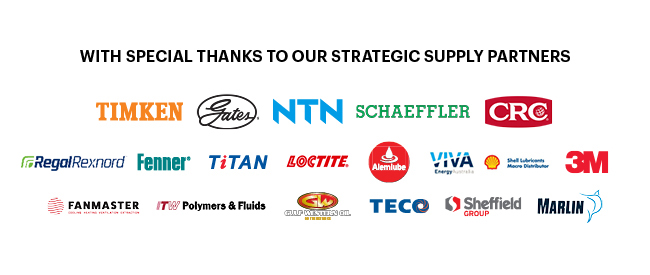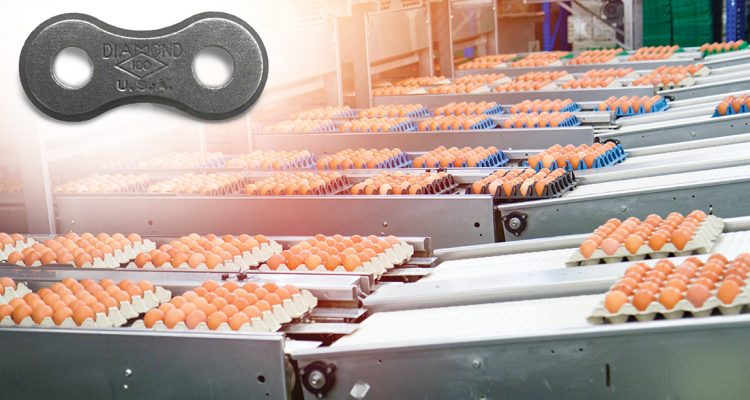When it comes to packing in high volumes, the accuracy of a plant’s equipment is essential to smooth operations.
Troy Markland, Motion’s National Product Manager for Power Transmission, says that this precision comes from high quality, reliable manufacturing and supply.
“With food and beverage operators, the degree of accuracy directly relates to wastage,” says Troy. “For example, the exact positioning of a bottle can determine whether there is any spillage or not.”
Which is why Timken’s high-quality attachment and stainless-steel Diamond brand chains are often preferred by the food and beverage industry. Available through Motion, these chains combine the benefits of reliability and leading edge technology with significant technical knowledge and expertise.
“Diamond is known globally as a premium brand,” says Markland. “And its owning company, Timken, has a strong history of performance and reliability. Our partnership with Timken offers many benefits to customers in the food and beverage business as they get great product in addition to our combined expertise and support.”
Troy warns that cheap, poorer quality chains can result in higher operating costs from reduced production, but also from downtime and expenses related to maintenance and more regular replacement.
“You have to look at it over the long term,” he explains. “Diamond chains perform really well, requiring minimal maintenance to continue to do so.”
He says that the benefits for the end user are there for the entire lifetime of the product.
“From the time we install the chain, until its planned maintenance is scheduled, that chain has got to do its best to deliver,” he says.
Each 10-foot section of its 40-pitch chain contains 1200 individual pieces. If a chain is only as strong as its weakest link, then each of these is a potential point of failure for the chain.
Accordingly, every element of Diamond’s chains is designed to the company’s dimensional standards and subject to a rigorous quality control system to ensure that only qualified pieces reach final assembly.
For plates, the company has designed a multi-stage process to create a straight-smooth, burr-free bearing area. Pins are precision ground to ensure consistent fit and smooth travel. Rollers are designed with dimensional control allowing for near-perfect roundness, and bushings are extruded with uniform wall thickness and concentricity for smooth travel.
Diamond also strictly controls its heat treating and quenching process, using dedicated carburizing furnaces that results in increased strength, durability, and resistance to wear.
Its shot peen process is completed in custom-made machinery, highly controlled to maximise fatigue resistance.
The lubrication for the chains involves a hot dip process in Diamond’s proprietary lubricant, ensuring continued surface retention.
Finally, the company also preloads its chains to approximate the recommended maximum load during usage, meaning that, once in the customer’s hands, the chain will not elongate.
The requirements that operators have for a chain vary, depending on each specific application.
“Whenever you order a chain, you’ve got to be talking to the people who now know what questions to ask and know exactly how to point the customer in the right direction,” he says.
As a supplier of Diamond chains Timken’s edge comes from its industry-leading products, and its extensive knowledge of their applications. The company’s engineers can offer practical, real-world insight so that customers are able to find the right product to solve the specific needs of their operations.
“Food and beverage operations need accuracy because they go so fast,” Troy concludes. “These chains are good for use any time anything needs to go into a bottle or be packed into a box.”

